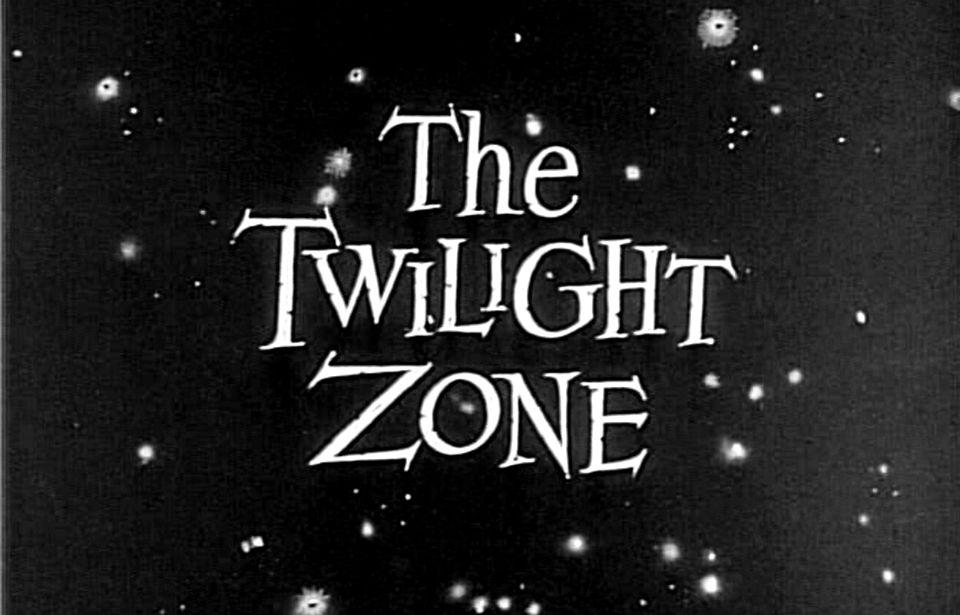A Season 5 episode of Twilight Zone, called “The Encounter,” was banned from syndication for decades. Originally airing in 1964, this episode starred a young George Takei alongside Neville Brand, crammed together in the tight confines of an attic. The tension between the two men becomes more palpable as the episode progresses and ultimately ends in tragedy.
Things start out cordial between Fenton and Takamori
"I've tried to give it away, sell it, throw it out with the garbage. But it always comes back."#ZoneQuotes #S5E31
Twilight Zone's "The Encounter" by Martin M. Goldsmith stars George Takei and Neville Brand. pic.twitter.com/hSdzDipfhp
— The Twilight Zone (@TheNightGallery) September 8, 2022
The episode starts out with young Arthur Takamori, a Japanese-American gardener played by Takei, arriving at WWII veteran Fenton’s house after receiving a tip from a neighbor. Fenton invites Takamori up to his attic to share a beer, which the latter accepts in the hopes that he will have a new client to take on.
Throughout the early parts of their meeting, Fenton expresses multiple microaggressions towards Takamori, including continuously calling him “boy,” implying he is superior to him. The latter openly explains his dislike for the address, saying “I get bugged by ‘boy.’ I’m a full grown man. I work for a living. I answer to Arthur, Takamori, or—believe it or not—Mr. Takamori.”
Fenton also points out how Takamori’s first name does not “match” his ethnicity, something which Takamori later admits, explaining how he changed it from Taro to Arthur. Despite the fact that inviting Takamori in for a beer may be considered neighborly conduct, Fenton makes him increasingly uncomfortable. Takamori feels as though Fenton is deliberately expressing hatred toward him.
Fenton later shows Takamori a samurai sword that he took after killing a Japanese soldier during the war. The sword has an inscription on it written in kanji, and Fenton makes the assumption that Takamori can read it, even though he was born in America. Fenton leaves the sword with Takamori as he leaves the attic to get more beer. Takamori says in a surprised way, looking at the sword, “I’m going to kill him. I’m going to kill him. Why?”
The two men meet with tragedy
The Encounter episode of The Twilight Zone! pic.twitter.com/HQlKAeDv3V
— DanielinKorea (@danielinkorea) May 4, 2021
When he returns, Fenton explains that the inscription says “The sword will avenge me.” The two men briefly participate in a heated exchange, but it eventually dies down. Then, seemingly enlightened by the sword, Takamori accuses Fenton of having killed the Japanese soldier after he had surrendered and been disarmed. At first, Fenton challenges this, but then admits to it. Feeling extremely uneasy, Takamori tries to leave the attic only to find that the door is locked. Fenton too tries to open the door, confused as to how it could be sealed shut when there is no lock on the door.
Stuck in the attic together, the two men continue to get into heated exchanges. Takamori recalls his experience at Pearl Harbor as a small child, explaining that his father worked as a construction worker there at the time of the Japanese attack. Initially, Takamori says that his father tried to warn the sailors of the attack, but later admits that his father was actually a traitor, sending coordinates for where to drop the bombs.
Seeing his guilt, Fenton tries to offer him some comfort, but Takamori, seemingly being guided by the sword, turns on Fenton and accuses him of being a murderer, as he killed an unarmed man. Fenton defends himself by saying he was taught by the military to see the Japanese as inhumane. He then admits his life is miserable and he is not proud of what he has done in his past.
Takamori, now fully possessed by the sword, prepares to kill Fenton. Fenton overpowers him and the sword is dropped, landing between table supports with the blade up in the air. When Fenton goes to grab for it, Takamori pulls at his feet, causing Fenton to be impaled on the exposed sword. Takamori then takes the sword and yells “Banzai!” as he leaps from the attic window, presumably to his death below. It is only then that the door to the attic becomes unlocked, opening on its own.
What got the episode pulled from syndication?

While The Twilight Zone had always done a good job of bringing social commentary to the forefront, this episode seemed to fall flat. The main reason the episode was pulled from syndication is because of the overtly racist overtones throughout. Fenton grapples with what he was taught to believe about the Japanese during the war against what civil liberties groups were pushing to reach new levels of understanding and equality. He is left confused, which explains a lot about his behavior.
Fenton’s character is well-written, with each detail about his life and his handling of events ultimately clarifying the trickling effects of racism, Takamori’s is not. Instead, his character feeds into the same racial flaws the episode is trying to expose. Takamori’s undoing comes at his admission of his father’s traitorous ways, reducing his identity to that of simply the child of a Japanese-American traitor.
The episode pushes more racist themes without necessarily intending to do so. It suggests that Japanese-American treachery was present during the attack on Pearl Harbor, and by doing so it turns Japanese-Americans into “others.” This was the very real basis used to justify the internment of thousands of Americans in camps based on their ethnicity. In its commentary on this, the episode plays into that same racist thinking.
More from us: The X-Files Episode That Was So Disturbing It Was Banned For Years
Airing in 1964, not long after the end of the Second World War when racial prejudices were still rife among Americans, the episode was removed from syndication until 2004.
